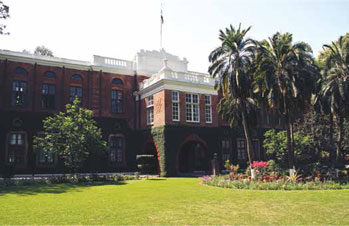
Internationally acclaimed educationist, Matthew Raggett, took up the post of headmaster of The Doon School, Dehradun from Dr Peter McLaughlin who retired in May 2016 after serving for about eight years. Before coming to Doon, Raggett was Principal of Leipzig International School, Germany for the last seven years. He’s a keen mountain biker who loves gardening and driving cars. This new headmaster of Doon School signals a change in tone as he brings in a whiff of fresh and friendlier air and holistic approach to focus on overall happiness rather than elitism in this 83 year-old institution. But that’s not all. He’s also dropping ICSE board in favour of Cambridge from this very session. For, he believes, “It invites kids to think and create original content” and thereby strengthen India’s intellectual heritage.”
In a candid interview, Raggett shares cheerfully his extensive career in international education, policy-making and implementation with Corporate Citizen. He spoke about what it means to be the head of India’s best boarding school and how he plans to introduce a new IGCSE + curriculum from this session onwards
What is common between politicians like Rahul Gandhi, Dr Karan Singh, Navin Patnaik, Mani Shankar Aiyar, Kamal Nath, Jyotiraditya Scindia; businessman Gautam Thapar (chairman Avantha Group), Malvinder and Shivinder Mohan Singh (Ex-owners Ranbaxy and presently owning Fortis Healthcare)? Well, they’re all Doscos (a term used for Doon School boys)—India’s first public school modelled on the lines of elite British schools like Eton and Harrow. Although there’re only about 6000 Doscos, they include some of India’s most prominent politicians, IAS officers, writers, sportsmen, journalists and business magnets. The best-known alumnus has, of course, been the former Indian Prime Minister Late Rajiv Gandhi.
Satish Ranjan Das, a Kolkata lawyer and advocate-general of Bengal who was the founding father of this school, wanted it to be modelled on the British public schools but ‘alive to Indian ambitions and desires’. By the way, Doon School actually adopted the national anthem “Jan Gan Man” in 1935 itself, which is 15 years before India adopted it.
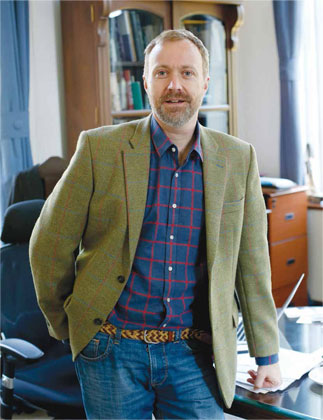
However, it was an Englishman, Arthur Foot, Doon’s first headmaster, who, in 1835, stated, “Our boys will join an aristocracy, but it’ll be an aristocracy of service, not one of wealth, privilege or position.”
With a teacher-student ratio of about 1:6, Doon School has strength of around 520 students and admission test is held for in January and April for pupils aged 13 for class 7 (known as D-form) and ‘very small admissions for those aged 14 for class 8 (known as C-form)’.
School provides sample question papers for entrance test for English, Mathematics and Hindi and they need to take verbal and non-verbal tests before being invited for an interview. Over 25% of those admitted are helped through scholarship and bursary programmes and they come from “all socio-economic backgrounds—from babus to billionaires—and get the same world class education, whether rich or poor”.
The school has five Boarding Houses (Hyderabad, Jaipur, Kashmir, Tata and Oberoi) and two holding houses (Foot and Martyn, named after former headmasters) where new students live for a year before moving to one of the main houses. Each house is run by a housemaster (an active member of the teaching staff) who is assisted by a senior boy known as house captain. One senior boy serves as school captain and is assisted by prefects from each house. Boys are assigned to houses at the time of admission and show great loyalty to them especially during intra-house sports competition.
We are certainly elite in character but not elitist and aristocracy simply means rule by the best and we live that out because we prepare our boys to lead and serve a meritocratic India but in a global context

That’s only partly true. Yes, we’re certainly elite in character but not elitist and aristocracy simply means rule by the best and we live that out because we prepare our boys to lead and serve a meritocratic India but in a global context. As for the rich and powerful tag, all I want to say is, we’ve always believed in merit and only those who qualify our entrance test and interview get admission.
Also, there’s a difference between being elite and being elitist. We’re not a snobbish school and have never been. We run lots of social service programmes. More than 25% of our students receive financial aid. Lots of our students, coming from different parts of the country are on scholarships and bursaries, many of them supported by our alumni. I want to clear this impression that we’re an elite school where only the sons of the rich and powerful can go. We're all for boys from the service classes. We've lot of financial aid available for those who come from defence background. For certain boys, we pay everything for them. We know we’re underrepresented in southern states and so I want to find a group who can help us on this. We’re constantly looking at how to serve India better.
Well, the funny thing is that wherever you go, children are children and teachers are pretty similar as well. They’ve chosen a profession where fundamentally they believe in giving and improving things, not just for the kids but to make the world a better place.
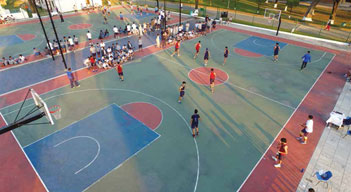
Well, my journey to these places has been quite interesting but I think Germany, where I worked for seven years, has some good schools like we heard about schooling in Finland which is rated very high too. I’ve worked in Singapore also for four years. It has a system of education that values academic success above things like creativity, imagination, ingenuity and initiative. Memory testing and rote learning is prevalent in the best of schools in Singapore and there is a culture of intense competition, which is just not attractive. Spain has a system where no matter what you do, you’ve to study Spanish literature, Spanish geography, Spanish history and philosophy up to a particular point. Mainstream schools in the UK, where I’ve studied and worked, are also very good because they develop curiosity, academic and thinking abilities, creativity and communication skills with confidence. Then India, of course, has an interesting education policy because it has a British legacy, which is now getting redrafted to move the next generation of learners forward.
I've known Doon School for a long time because one of my colleagues in Canada started his career over here. He was a chemist here and he always used to say what a fabulous place this was. He introduced me to Doon. So, I always wanted to come here with my wife Lindsay but could do so only last year, on 20th of March, for just four days and immediately fell in love with this place. In Germany, I knew I want to find a place that’s exciting, vibrant, and slightly crazy and complicated because my kids were getting older and I was ready to show them something different as well.
My first impression was: What a gorgeous environment in which you can learn. But my next impression was that the boys were fantastic, enthusiastic, inquisitive, articulate and very friendly and that made me came back twice in May. Incidentally, I was offered a couple of jobs by some other schools too in the last two years. But I wasn’t interested in them because those were family-owned and for-profit schools where the office next to that of the headmaster was of the owner or the educational director who was the daughter-in-law of the owner (laughs). There are many such schools here where the Head is merely a puppet and the nature of governance is not something that I’d like to work with. So, when I got the offer from Doon School, I felt really excited because it’s not just any other school that focuses on academic excellence only but on academics plus everything else.

They were looking for someone who has met many perspectives, worked globally and has rich experience of implementing and running the CIE (Cambridge International Examinations) programmes in schools. In my previous schools, we introduced new aspects of CIE curriculum and introduced entirely new vocational curriculum that the International Baccalaureate (IB) offers. Moreover, I’ve years of experience of working with IB curriculum. They were also looking for someone who’ll be able to explore the pedagogy and the practice of teaching in the school to keep it moving forward as well. Other than this, they wanted someone with an MBA who has worked in the kind of schools they would like to compare themselves with in global benchmarking.
One of the things about India which is different from other countries is that there exists a huge power distance in this country that comes with leadership position, title, name and all of that. Germany, the last place I worked in, is the least power distant country that I’ve worked in. Anyone will say anything to anybody
Yes. That's right. The IGCSE is a two-year programme but it comes at the end of Kindergarten. However, we're doing it from 7th class because Doon starts from 7th onwards. So, IGCSE Board has actually been introduced from 7th class only but now it'll be introduced for classes 9 and 10 as well because we've been preparing students for this from class 7 itself.
You can’t introduce something of this kind unless you've prepared your faculty for it. So, for the last four years, our teachers have been going through a custom-made training by the Institute of Education in London. It's called the PGCSE (Post-graduate Certificate in Secondary Education). Nearly 40 of our teachers have already gone through this research-based training programme, which is equivalent to a master's degree. It's a process of continuous improvement for us. Incidentally, we've a teachers' training centre at our school where we run this Cambridge training for teachers from other Indian schools. Since 2014, our staff has been involved in it and we bring Cambridge trainers in from other parts of the world as well.
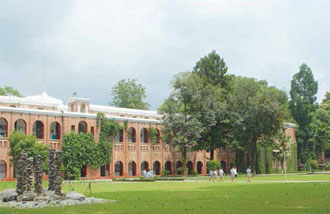
See, your classroom arrangement is just as important as your curriculum. When your classroom set-up is in harmony with your teaching style, the benefits can be endless otherwise it can be detrimental. For example, if you’ve three rows and the teacher's bench is in the front in the classroom, there is very little opportunity for a feedback because the teacher is not in a position to get anywhere. But that's what every classroom looked like when I came here. Almost 50% boys never had a teacher standing next to them because he couldn’t move. But now, in the new set-up that I’ve worked on, the teacher is able to move around freely, be next to every boy and the students are also working together and collaborate. Incidentally, collaboration is the most valuable skill you ever need in the workplace.
Well, it’s improved a lot because one of the things that gives the most rapid learning is the immediacy of feedback. If a teacher is able to stand next to someone, look into what he's doing, comment on it, give them a sense of how they can improve it, then they're going to learn faster and that’s exactly what is happening now.
I’ve already started making changes which are being noticed by one and all. I mean, if you’d come here six months ago, there would’ve been a very heavy desk here in my office. The classic power desk in which one person can sit in one high position and everyone else had to stand up around it. You can't have your knees up and you can't do anything together. I immediately got rid of that by putting in a table where we can all work together and there is no sense of fear. Everybody can say what he feels like. It’s part of the same idea that we’re all working together which is why it's important that the doors of my office are always open as much as possible.
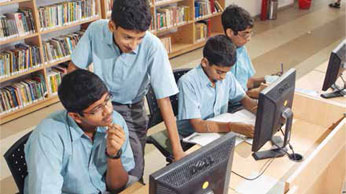
I think whoever you are, you've got to be able to hear that you might be wrong. You've got to recognise that other people's ideas are probably better than yours. It's the same with masters. One of the things about India which is different from other countries is that there exists a huge power distance in this country that comes with leadership position, title, name and all of that. Germany, the last place I worked in, is the least power distant country that I've worked in. Anyone will say anything to anybody. Germans have a reputation for being forthright because distance doesn't exist. Again, that's a country where your ministers work for you and not for themselves and heads of school recognise that they're working for their staff and students and that's something I also tried to share with my teachers at the start of my time here. My understanding of my job is that they don't work for me, I work for them.
At Doon, leadership is learned through the culture as much as the curriculum and is implicated in activities well beyond the classroom. It’s often developed informally. So, leadership is taught through our leading clubs, societies and sports teams. It's also developed through innovative and creative projects linked to the school’s social service programmes that range from flood management to the library and games to technology. House life through the prefect system also provides leadership and collaborative experiences.
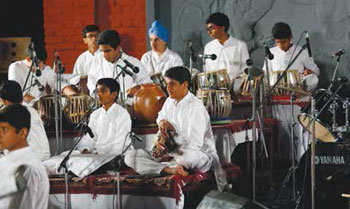
When I first came here, I met with the prefectorial body of the school. We've 20 prefects and the school captain. In my first meeting, I asked them what it is about being a prefect. And, they said, well, it's about punishing students. It's about having power to do certain things. I immediately thought that's what I need to work on. Incidentally, before I came, prefects were appointed during what they call ‘scooping’.
It’s a Dosco word which means if you want to become a prefect, you’ve to make yourself ‘visible’ to your housemaster and other masters and that will make you look good and the prefect material. But I felt this is not the way to do things. Prefect is a position of responsibility and therefore they’ll have to apply for it and get elected from the prefectorial body. They’ve to realise that punishments are an indication that your leadership has failed because you had to resort to using power.
At Doon, leadership is learned through the culture as much as the curriculum and is implicated in activities well beyond the classroom. It’s often developed informally. So, leadership is taught through our leading clubs, societies and sports teams
We ran a workshop ‘So you want to be a prefect’, for which 63 out of the 105 students of class 11 came and 52 applied to be prefect because others realised that leadership is not for everyone.
I tried to explain to them what real leadership was. How it works. How by being caring and helping those who are in a lesser position of power than you makes them a true leader because the opportunity to take advantage of younger boys exists if power exists.
No. They’ve not, but I’ve made the prefects understand that punishment is the last resort. Your job is counselling. A leader is someone who has positive influence. We're drafting the Prefect's Punishment Table. So, they’ve recently abolished the awarding of ‘lines’ as punishment.
It’ll take three years because in three years time, the people coming up to the very top-end of the school will see and remember this is what we've been talking about.
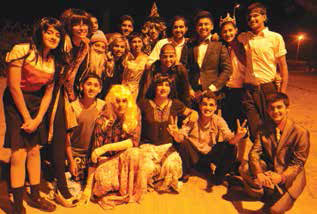
You get feedback from parents, who are either very unhappy or very happy. Everybody else in between doesn't care. Many parents of boys, who’ve been here for six years and now leaving, have told that they’ve never seen the boys looking happier in the school. They appreciate the new classroom arrangements and construction of five covered benches around the main lawns where boys enjoy sitting and doing work in the vicinity of nature and that builds social capital too.
I’m working in the boarding houses to increase the privacy that boys have because there is really not much privacy and also introducing pantries so the boys have access to bread, milk, fruits, cheese and so on. Teenage boys are like horses they love eating but you're not supposed to have your own stock in school because that introduces inequity into the system. So, pantries will help. In some countries, you can't run a boarding house unless you have a pantry.
We compete in the Indian Public Schools Sports Tournaments for whatever sports you can imagine, be it boxing, swimming and the rest. But if you're talking about Olympics, we're not. We're not a sports academy. We're a school. We do have students who’ve the potential to do well at international level, but what we do is: we provide, like in our academics, broad curriculum of sports and facilities for that. In the next couple of years, we’re going to build an international level sports centre that will upgrade our facilities and include indoor climbing as well as squash, basketball, and so on. Right now, we’ve four squash courts, three tennis courts and two very nice basketball courts. Then there is a shooting range with a beautiful cricket pitch that also holds good for hockey and football. There are sports classes in the time table. We've PT in the morning, and after lunch, we've sports, or social service or Socially Useful Productive Work.
That’s probably reflecting around the world. But I disagree when you say we’ve stopped producing geniuses. I keep meeting our boys who are doing great work and changing the society. Of course, we’re proud of Doscos like former PM Rajiv Gandhi and my favourite writers Amitav Ghosh and sculptor Anish Kapoor. The list is endless. You’ve got people like Anil Kumar, the co-founder of ISB Hyderabad,which is considered India’s best institute of management, churning out people who’re influencing the way leaders think.
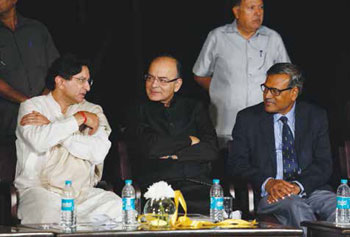
We’ve produced some great writers like Vikram Seth, Ram Chandra Guha and journalists like Pronnoy Roy, Aroon Purie, Karan Thapar, Vikram Chandra and Virender Prabhakar who’ve made huge impact. Talking of the new generation, I want to think of Siddharth Dube who has written a book titled ‘No One Else’ on gays in India, which includes his time spent over here. Look at the writing he does in his works for the World Bank and the UN. He’s an author whose books on development, public health and gender issues have made huge impact on the care and development for the people of HIV in India. Then there are people like Sandeep Dutt whose pioneering work for the Fabindia Schools has been acknowledged world over as he’s working to provide affordable quality education in rural and urban India. We’ve got guys who are chairman of enormous industrial organisations in India and their family foundations are doing incredible work. You can’t imagine the work they are doing to support the arts, education and development of this country. But it’s done just quietly, not publicly. Again, if you want me to name politicians, other than the Gandhis, we’ve many including Jitin Prasad, Jyotiraditya Scindia, Dushyant Singh (son of Rajasthan CM Vasundhra Raje) and then there is Yash Gandhi who is a key political aide and war-room boy of Prime Minister Narendra Modi. A low-profile professional, I’m told, he’s said to have played major role in creating the Brand Modi and manages his social media content and analytics right there in the PM Office.
No, but I see it differently. People have said to me: What are Doscos doing now? I say everything. They’re leading TV channels, anchoring news and thereby influencing the way people think. They’re making films. People like Roshan Seth, Himani Shivpuri, Chandrachur Singh acted in films. People like Shayan Italia are producing music. India’s only Olympic individual gold medallist Abhinav Bindra is also from Doon. There’re many, who may not be in public eye but doing great work. We’ve a social worker in Meerut who does community work silently. Similarly, we’ve got surgeons who are leading healthcare specialists in UAE, causing huge impact on medical policies of that region but without glamorising it.
What I find here is an incredible willingness to participate in experiments, to try new things and to see how they work. Because of this urge to experiment, some of our students have done some very interesting things in the creative fields
What I find here is an incredible willingness to participate in experiments, to try new things and to see how they work. Because of this urge to experiment, some of our students have done some very interesting things in the creative fields. By having so many activities, so many opportunities for students to try things, try handling leadership, try creative writing and again it's same with the staff. We give them opportunities so that they can try things and flourish. If we could carry this spirit forward, we’ll remain at the forefront.
It is to recognise that I might be mistaken, that I’m not complete. It’s also to try and be enthusiastic and curious about everything. Incidentally, I think, curiosity and enthusiasm are the biggest gifts that a parent can give to their child. As soon as you start losing those two things, you’re on the road to a mundane existence and that's a tragedy.
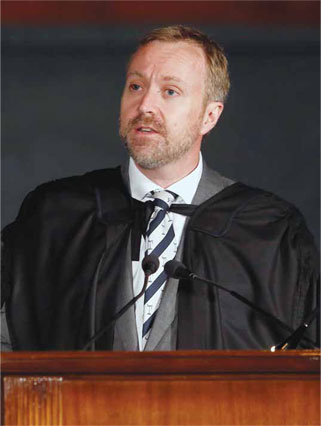
I’ll use the words of my friend Deepak Arora who used to teach German here. He’s lived in Germany and is currently head of a local school. He once said, “Germany is organised hell and India is chaotic heaven” and that's exactly how I also feel. Though it’s not so chaotic in the school but as soon as I go outside the gates, it's complete chaos. I love driving here. It’s insane but I've never felt as excited in a car as I do here. When I go outside, I know anything can happen. People here drive without having any anticipation but to be in the middle of here is incredible. There’s so much to learn here. Each time I come back from my home in Germany or from Singapore where I worked, I feel so glad because India has more vibrancy, more energy, and more dynamism than anywhere I've ever been and that’s very exciting.
If he’s coming from a day school from cities like Delhi or Gurugram, I’ll tell him to join here because he’ll be breathing cleaner, he'll not be travelling to the school for two and half hours a day, he'll not be exposed to gadgets and he’ll get a different exposure. Our mission is to attract and develop exceptional boys from all backgrounds to serve a meritocratic India and we take our responsibility to find what’s exceptional in boys very seriously. I’ll assure him of an all-round education built on foundations of Service, Sports, Creative Arts and Academics in lush green Chandbagh estate. I’ll tell him that we take very good care of our boys in the boarding houses. I think, is good for the kids who want to join Doon where we prepare teenagers for today’s competitive and inter-connected world and help them turn their ideas and passion into something original and valuable.
Working with people and helping them try and be the best version of themselves excites me.
We’ve lots of old boys doing great work in different fields. They’re willing to help. With their support, I want to send our boys for internships and placements, so that they may learn how to turn their passions and dreams into reality. I’ve already begun this process.
No story on Doon School, spread in over 72 acres, is complete without talking about its weekly publication titled The Doon School Weekly which is perhaps the oldest running school magazine in India.
Established in 1936, a year after school’s birth in 1935, it’s distributed every Saturday morning. What makes it different is the fact that it represents the collective efforts of a very talented and dedicated group of student editors and reporters dedicated to maintaining the highest standards in editorial print.
Printed in black and white, this 6/8-page A-6 size, loosely-held magazine offers topical articles on current socio-political affairs, interviews, letters-to-the-editor, crossword puzzles, cartoons, poems and reports on school trips, society meetings, concert reviews, matches and such other events held in the school during the week.

Penned by students and staff, sometimes they’re quite critical of the changes taking place in the school. For example, in the March 11(Issue No 2462) edition, there is a onepager by Aryan Chhabra which raises serious questions about the School’s adoption of the IGCSE curriculum in place of the ICSE curriculum and what its long-term implications are for those who wish to apply to Delhi University colleges. Similarly, there is a hard-hitting piece written by former Dosco CC Chengappa titled “Tradition Endangered” (Issue No 2457) which critically examines the recent changes to the School’s 90-year-old UNESCO heritage structure
“Though I do not agree with arguments forwarded by both Chhabra and Chengappa in their articles, you can see how editorially independent we’re with regard to the contents of the Weekly,” says Matthew Raggett. In fact, this freedom to free expression has led many student contributors to later become “great authors, politicians and journalists,” he points out, adding that the list includes some great names. For example, poet and novelist Vikram Seth (class of 1970); Man Booker prize winner Amitav Ghosh (class of 1972); Times of India’s journalist Swaminathan Aiyar and veteran editor BG Verghese; broadcast journalist Karan Thapar (class of 1971); historian Ramchandra Guha (class of 1973); politician Manishankar Aiyar (class of 1967); Pronnoy Roy and Tejeshwar Singh (class of 1965), to name just a few. “They were all very active contributors to the Weekly and some of them also worked as editors of the Weekly. I think it must have had a positive influence on them which must have helped them achieve great heights as writers and journalists in their respective careers.”
The ranks of former Doon School Weekly contributors also include editors at The Economic Times, and Foreign Affairs magazines, as well as reporters at The Wall Street Journal, Hindustan Times; The Washington Post, The New York Times and many other newspapers and magazines. Other school magazines include The Yearbook and The Doon School Information Review. Publications by academic departments include VIBGYOR (Art), Echo (Science), The Econocrat (Economics), Infinity (Mathematics), Grand Slam (Sports) and The Circle (History and Political Science).
Extracurricular activities are also a compulsory element of School’s life, and there are around 23 clubs and societies, including politics, drama, photography, aero-modelling, dramatics, painting, sculpture, carpentry, amateur radio, music (including Trinity music examinations), senior and junior English debating societies, Model United Nations, chess and astronomy. In many societies pupils come together to discuss a particular topic, presided over by a schoolmaster and often including a guest speaker. The school has often invited prominent figures to give speeches and talks to the students; these have included heads of state, politicians, ornithologists, naturalists, artists, writers, economists, diplomats and industrialists, to name a few.
By Pradeep Mathur